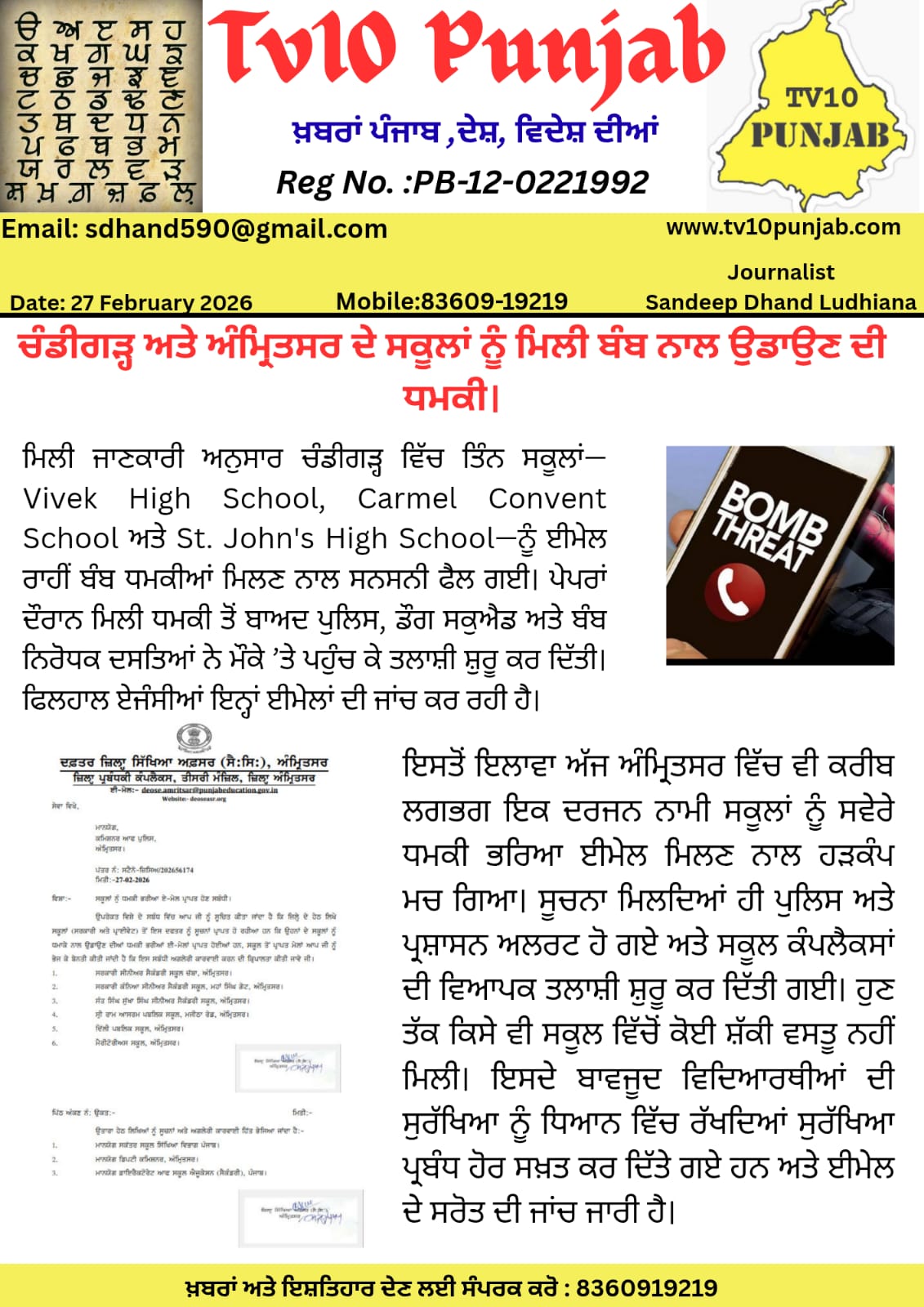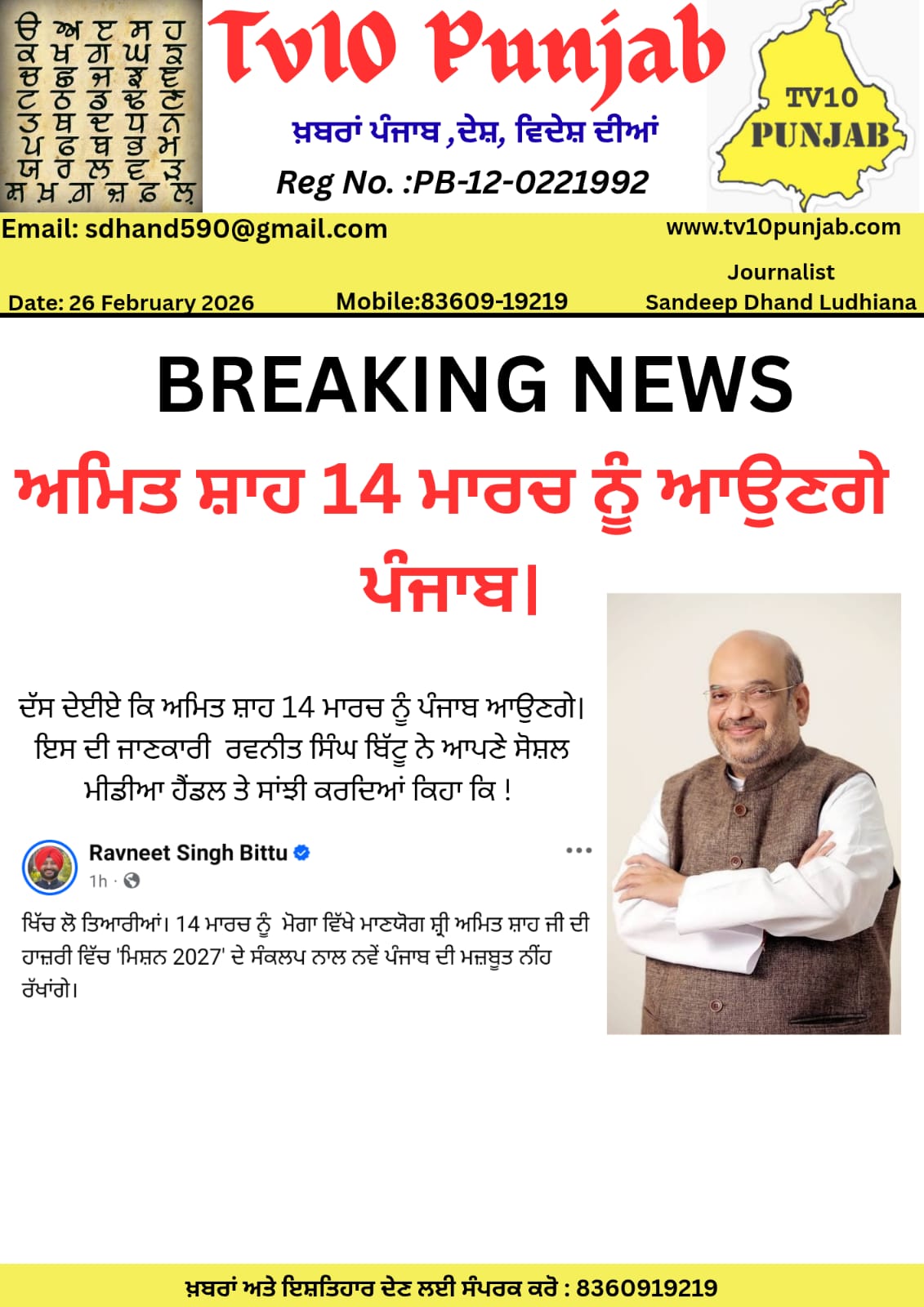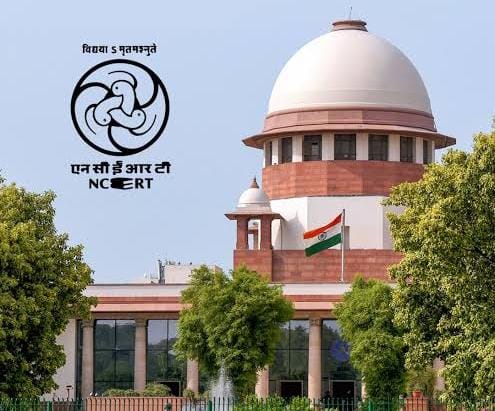Health Desk
Tv10punjab
Introduction
Hypoglycemia is a medical condition in which the level of sugar (glucose) in your blood drops below the normal range. Glucose is the main source of energy for your body, especially for your brain. When blood sugar levels fall too low, your body and brain cannot function properly, and this can lead to mild to severe symptoms.
Hypoglycemia is most commonly associated with people who have diabetes, especially those taking insulin or certain oral medications. However, it can also occur in people without diabetes due to various reasons such as fasting, intense exercise, or certain illnesses.

Understanding hypoglycemia is important because if it is not treated quickly, it can lead to serious complications like seizures, loss of consciousness, and even coma. This article will explain hypoglycemia in detail, covering its causes, symptoms, diagnosis, prevention, treatment, and the role of diet in managing it.
What is Hypoglycemia?
In simple terms, hypoglycemia means low blood sugar.
Normal fasting blood sugar level: 70 to 99 mg/dL
Hypoglycemia: Blood sugar level less than 70 mg/dL
When glucose drops below 70 mg/dL, the body reacts by releasing stress hormones like adrenaline to increase blood sugar. If the sugar keeps dropping, the brain starts to malfunction because it relies heavily on glucose.
Types of Hypoglycemia
- Mild Hypoglycemia
Blood sugar slightly low
Symptoms: Hunger, mild shaking, sweating
Can be treated quickly with sugary food or drink
- Moderate Hypoglycemia
Blood sugar lower, brain function starts to be affected
Symptoms: Confusion, trouble concentrating, irritability
Needs immediate attention
- Severe Hypoglycemia
Blood sugar very low, brain unable to function properly
Symptoms: Seizures, loss of consciousness
Requires urgent medical help
Causes of Hypoglycemia
Hypoglycemia can be caused by many factors. The most common causes include:
- Diabetes and Its Treatment
Taking too much insulin
Skipping or delaying meals after taking medication
Taking certain diabetes pills like sulfonylureas (e.g., glimepiride)
Incorrect medication timing
- Skipping Meals or Fasting
Long gaps between meals
Crash diets
Religious fasts without adjusting medication
- Excessive Physical Activity
Intense exercise without eating enough
More physical activity than usual without adjusting insulin/medication
- Alcohol Consumption
Drinking alcohol on an empty stomach can cause the liver to stop releasing stored glucose, leading to hypoglycemia.
- Medical Conditions
Liver disease
Kidney disease
Hormonal disorders (adrenal or pituitary problems)
Certain tumors (insulinoma)
Symptoms of Hypoglycemia
Symptoms can develop quickly and vary from person to person.
Early Symptoms
Hunger
Sweating
Shaking or trembling
Rapid heartbeat
Feeling anxious or nervous
Tingling in lips or tongue
Moderate Symptoms
Headache
Irritability
Confusion
Difficulty concentrating
Blurred vision
Dizziness
Severe Symptoms
Seizures
Loss of consciousness
Inability to swallow
Coma
Note: Some people develop hypoglycemia unawareness, meaning they don’t feel symptoms until sugar levels are dangerously low. This is common in people who have had diabetes for many years.
Diagnosis of Hypoglycemia
Doctors diagnose hypoglycemia based on Whipple’s Triad:
- Symptoms of low blood sugar
- Low plasma glucose measurement
- Relief of symptoms after raising blood sugar
Tests may include:
Blood glucose test during symptoms
Continuous glucose monitoring (CGM)
Fasting test (for non-diabetic causes)
Hormone and liver function tests
Immediate Treatment for Hypoglycemia
Rule of 15
If your blood sugar is below 70 mg/dL:
- Eat or drink 15 grams of fast-acting carbohydrates:
3–4 glucose tablets
½ cup fruit juice
1 tablespoon honey or sugar
- Wait 15 minutes and recheck blood sugar.
- If still low, repeat.
- Once normal, eat a small snack if your next meal is more than 1 hour away.
For severe hypoglycemia (person unconscious):
Do not try to give food or drink by mouth.
Give a glucagon injection if available.
Call emergency medical help immediately.
Prevention of Hypoglycemia
Eat meals and snacks on time.
Do not skip breakfast.
Adjust medication when increasing physical activity.
Monitor blood sugar regularly.
Carry glucose tablets or sugary snacks.
Limit alcohol and never drink on an empty stomach.
Educate family and friends on how to help in an emergency.
Long-Term Management and Diet
Food plays a major role in preventing hypoglycemia. A balanced diet ensures steady glucose release into the blood.
Key Dietary Principles
- Eat small, frequent meals every 3–4 hours.
- Include complex carbohydrates (whole grains, oats, brown rice) for slow energy release.
- Combine protein with carbohydrates to prevent rapid sugar drops.
- Avoid excessive refined sugar (it causes quick spikes and crashes).
- Include healthy fats for longer satiety.
- Stay hydrated.
Best Food Items for Hypoglycemia
Here’s a list of foods that can help prevent or treat low blood sugar.
Fast-Acting Carbohydrates (for immediate treatment)
Glucose tablets
Fruit juice (orange, apple, grape)
Regular soda (not diet)
Honey
Sugar dissolved in water
Jelly or jam
Complex Carbohydrates (for prevention)
Whole wheat bread
Brown rice
Oats
Quinoa
Sweet potatoes
Protein-Rich Foods
Eggs
Yogurt
Milk
Peanut butter
Lentils
Nuts and seeds
Healthy Fats
Almonds
Walnuts
Olive oil
Avocado
Fruits
Apple
Banana
Pear
Grapes
Mango (in moderation)
Vegetables
Spinach
Broccoli
Carrots
Green beans
Sample Meal Plan for Hypoglycemia Prevention
Morning (7–8 AM):
Whole wheat toast with peanut butter
1 boiled egg
1 small banana
Mid-Morning Snack (10–11 AM):
Yogurt with sliced fruits
Handful of almonds
Lunch (1 PM):
Brown rice or whole wheat chapati
Lentils (dal)
Mixed vegetables
Salad
Evening Snack (4 PM):
Whole grain crackers
Cheese slice or boiled egg
Dinner (7–8 PM):
Grilled chicken or paneer
Steamed vegetables
Quinoa or chapati
Bedtime Snack (if needed):
A glass of milk
1 small apple
Complications if Hypoglycemia is Ignored
If untreated, hypoglycemia can cause:
Accidents or injuries (due to fainting or confusion)
Seizures
Brain damage
Death (in extreme cases)
For people with diabetes, frequent hypoglycemia can make it harder to manage blood sugar effectively and increase the risk of hypoglycemia unawareness.
Conclusion
Hypoglycemia is a serious but manageable condition. Understanding its causes, recognizing symptoms early, and knowing how to treat it quickly can save lives. Food plays a central role in both prevention and treatment. By eating balanced meals, carrying emergency carbohydrates, and regularly monitoring blood sugar, you can greatly reduce the risk of dangerous drops in glucose levels.
Remember, if you experience frequent hypoglycemia, it is important to work closely with your doctor or nutritionist to adjust your medication and diet plan.



